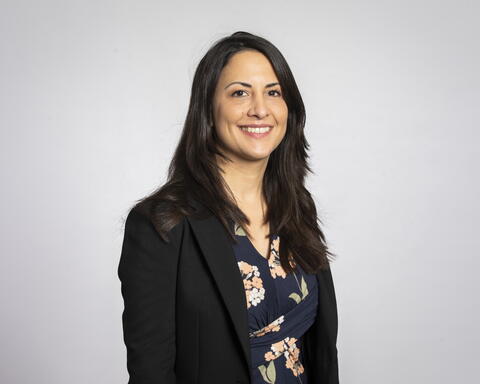
Written by
Published
Category
Key topics
Imperial-backed ventures are showing other startups how to survive the pandemic – and succeed once it's over
The lean startup methodology has revolutionised how entrepreneurs approach starting a business.
While the traditional route for aspiring CEOs involved business plans, investor pitches and the “hard sell”, the lean startup method, with its focus on minimising product development cycles, “pivoting” and customer feedback, offers the chance to quickly discover if your proposed business model is viable.
So far, so good. But in light of the coronavirus (COVID-19) pandemic, entrepreneurs will need to adapt certain elements of this methodology to suit the current moment. Here are three key ways they can do just that, using startups supported by Imperial Business School as examples.
1. Reach customers virtually
One of the key principles of the lean startup method is to encourage founders to “get out of the building” to find their customers.
With many countries likely to face some level of restrictions on movement for some time, “getting out of the building” is not possible. So, what else can entrepreneurs do to locate their customer base?
While it may not be possible to “get out of the building” in the literal sense, there are ways for startups to find their customers virtually.
There are ways for startups to find their customers virtually
Imperial startup Bia.Care, a Venture Catalyst Challenge finalist, is working on ways to help women find and access the right menopause treatments using technology. Since lockdown, they have transitioned to running virtual events, where women are able to get together to share stories and support each other online. They also presented at “Her Future Summit”, a virtual conference, to an audience of over 600 people from around the world about what tech can do to help women experiencing the menopause.
For ideas on how to reach your customers virtually, see Imperial Enterprise Lab’s advice on customer discovery during lockdown.
2. “Design-build-measure-learn”
A second principle of the lean startup approach has stemmed from the concept of MVP (minimum viable product). That is, to build something with a basic set of features that customers can see, touch and play with, so a startup can gain feedback and learn from this interaction. But what do you do if you cannot access the facilities where you need to build the MVP, especially when it is a physical product?
While it may be difficult to build the physical product, startups can and will spend more time on design during COVID-19, which should lead to a more efficient and effective “build-measure-learn” process. Should this prove fruitful, it could lead to a change in startup behaviour more widely from “build-measure-learn” to “design-build-measure-learn”.
Startups can and will spend more time on design during COVID-19
Imperial startup Sukoon, part of the WEInnovate programme, is working on a bandage for burns victims in developing countries.
“We are sketching product designs, researching materials and doing virtual Hack-at-Home sessions. The next step would be to convert pen and paper designs into CAD [drawings], which can help us simulate how the exudate from the burn wound might behave, until we can be in the lab,” says co-founder Hansa Shree.
3. Alter the path of perseverance
The third major principle of the lean startup approach focuses on when to pivot and shift the business model and when to persevere.
However, COVID-19 has brought about other scenarios, with startups continuing with the same business model, but altering the path they are taking to arrive there. For example, some Imperial startups have shifted their priorities and are investing time in activities that would otherwise be carried out at a later date.
Any alterations to approach need to be managed carefully to ensure the startup stays on the right course
"We are not pivoting to a new idea, but have shifted our focus away from physical building and prototyping to things we can do digitally, such as updating our social media and website, continuing our customer discovery, and applying for competitions and grants for future funding," says Hanson Cheng, co-founder of The Tyre Collective, which is working on a solution to mitigate emissions from tyre wear.
It’s important to note that any alterations in approach would need to be managed carefully to ensure the startup stays on course with the business model.
We are supporting our startups with initiatives such as the COVID-19 Task Force and will be following them closely as they navigate their way through the pandemic.


